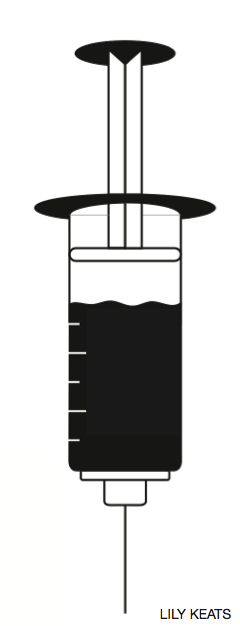University needs a heroin antidote
August 30, 2017
While heroin use isn’t immediately visible on UVM’s campus, it’s here. In 2009, UVM was forced to confront the opioid crisis when senior Will Gates died of a heroin overdose.
Last spring, the UVM Humanities Center invited reporter Sam Quinones to speak about the opioid crisis. The most insidious part of the epidemic is Americans’ shame-driven unwillingness to talk about drug abuse.
Meanwhile, the crisis worsense. In 2016, Vermont’s opioid death toll increased by 38 percent, Burlington mayor Miro Weinberger said.
According to the Vermont Department of Health, the state’s number of heroin-related deaths rose from zero in 2010 to 34 in 2015.
“We now know that [opiate overdose] is the leading cause of accidental death in the United States. That’s certainly true here in Vermont,” Weinberger said.
But, if we are willing to shirk silence for action, there is a glimmer of hope: Narcan– a drug that can bring people back, because we’ve lost too many already.
Last May, UVM’s Center for Health and Wellbeing an- nounced that students could anonymously obtain Narcan, an anti-opioid overdose drug that restores normal breathing to the victim, free of charge from the University Health Center on Pearl Street.
The University informed students of Narcan’s availability in a campus-wide email April 27 after a new synthetic opioid, carfentanil, was found in the blood of three overdose victims in New Hampshire, said Dr. Jon Porter, director of the Center for Health and Wellbeing.
Carfentanil is ten times stronger than heroin, and it is everywhere. While UVM medical center hasn’t confirmed any cases of carfentanil overdose, it’s likely that it’s circulating in Burlington, Porter said. When Vermont law enforcement warned the University that the drug was likely already in Burlington, the Center for Health and Wellbeing decided to put their plan of putting Narcan kits on campus into action, Porter said.
“We just want to make it as available as we can,” Porter said. “We’re trying to minimize and reduce any barriers that exist. Offering Narcan on campus is a good way to do that.”
The decision to fund a program of free, easily accessible anti-overdose drugs is one that counteracts the secrecy surrounding drug abuse.
The Center for Health and Wellbeing and the University as a whole are bringing the challenges of addiction and recovery to light, a step in the right direction to counteract the opioid epidemic.
Regarding an issue that qualifies as an epidemic, there is no time to be cynical. The distribution of Narcan on campus has potential to benefit everyone, not only students, but the well-being of Burlington as a whole. Advertising the drug promotes rehabilitation alternatives.
As a community morally centered around living well, UVM ought to welcome this initiative with open arms.







